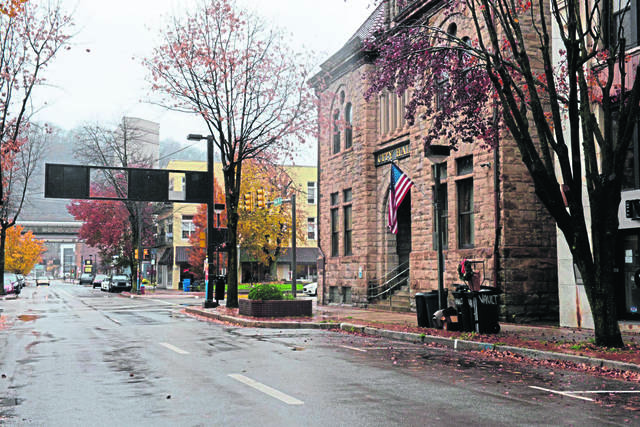In 1987, the Pennsylvania Legislature threw a lifeline to communities that were struggling economically: Act 47.
Known as the Municipalities Financial Recovery Act, it takes some of the back-to-the-drawing-board nature of a bankruptcy restructuring and adds a bit of money management lessons in the vein of debt guru Dave Ramsey, sweetened with the ability to raise revenue with certain taxes the state doesn’t allow other municipalities to levy. It is a carrot and a stick and a stern talking-to.
Only 31 municipalities — including Braddock, Duquesne and Rankin in Allegheny County, Aliquippa in Beaver County and New Castle in Lawrence County — have taken advantage of the program in 33 years. Fifteen have “graduated” from it, as Pittsburgh did in 2018. Those are far from the only areas struggling.
But in a state where the coronavirus pandemic has hit hard, demanding extra spending and impacting the revenue of many boroughs, townships and cities, that might change, as the Tribune-Review’s Jamie Martines explored in a recent Spotlight PA article.
The communities that have utilized the program seem to be weathering the covid crisis well.
“Our city, and other Act 47 cities as well, they’re resilient,” Johnstown community and economic development director Josh Dubnansky said. “They find a way to work through the hard times and work toward the future and making things positive again.”
Johnstown was supposed to exit Act 47 in 2021, but has opted to participate until 2023.
While the federal government and the state are looking to find ways to shore up communities affected by either the disease or the economic fallout, maybe what they really need is less an open checkbook and a more a plan for success like that modeled by Act 47 for decades.
The City of Duquesne’s three-year exit plan was passed in 2019. It is a safety net of goals and priorities that encompass more than just a bank balance. It has recommendations from an appointed Act 47 coordinator for finance and budgeting, yes, but also workforce initiatives, economic and community development and management.
What if the state supported every community the way we support those that enter Act 47? What if Pennsylvania helped every community make the best plans it can for advancing its goals and shoring up its weak spots? That could be especially helpful in a statewide emergency like the pandemic.
The state — much like the federal government — tends to enjoy telling local government what to do and not funding it, or giving money through grant programs without long-term goals. How many municipalities have gotten funding for a position for a year or two but no plans for how that job is paid or the work gets done when the grant dries up?
Act 47 has proven to be more than just a rope thrown into the water, because a real lifeline only works if there is someone on the other end helping pull toward safety.








